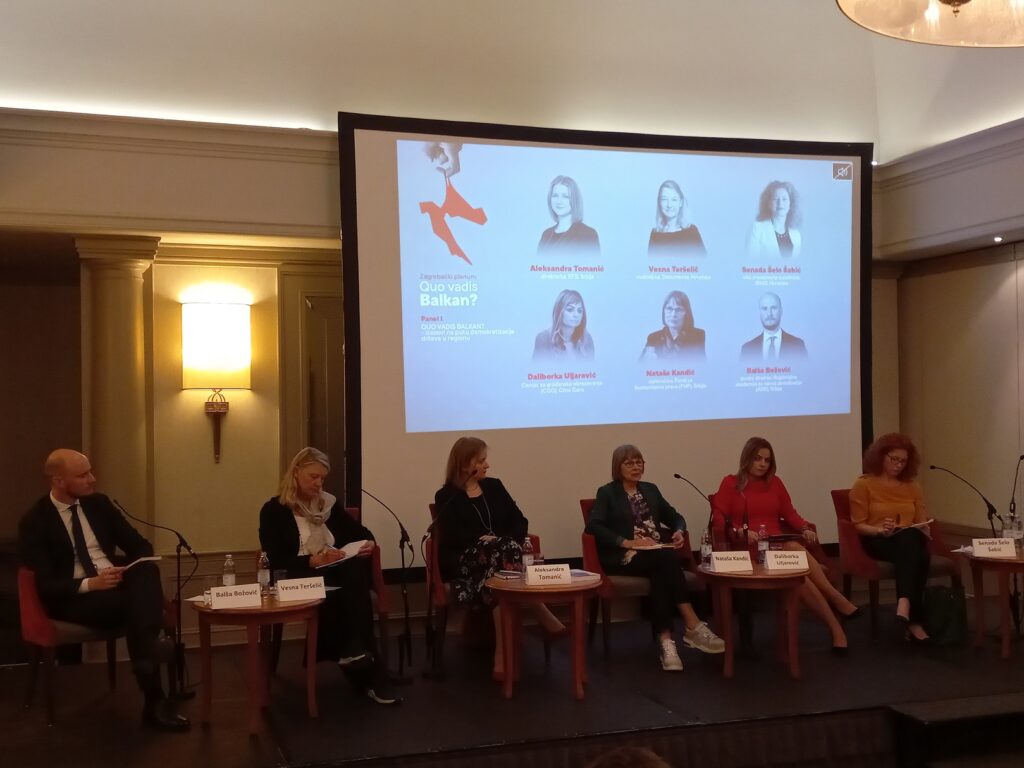European Fund for the Balkans (EFB) Director Aleksandra Tomanic said in Zagreb today that politicians in the Western Balkans continue to pursue nationalist policies and address 19th-century issues instead of key issues, such as the emigration of people from the region and major pollution. .
“The Western Balkans is the poorest region in Europe with the highest emigration rate. “They are constantly talking about some territories that we supposedly need for our nation, and they are not able to keep the nation in the existing territories,” said Aleksandra Tomanić at the regional gathering “Quo vadis, the Balkans?”.
She stated that 30,000 people die in the region every year because the Western Balkans is the most polluted region in Europe.
“Instead of dealing with these key issues, we are dealing with 19th century issues. And the wars from the 1990s do not seem to be over yet, “said Aleksandra Tomanić.
Senada Šelo Šabić from the Institute for Development and International Relations from Zagreb assessed that Croatia contributes to the destabilization of Bosnia and Herzegovina and never treats Sarajevo as an equal partner.
“Croatian interventionism destabilizes BiH. Decisions must be made in Sarajevo, not Zagreb. It is a completely devastating way in which Croatia is doing that “, said Senada Šelo Šabić.
According to her, the Dayton Peace Agreement cannot create the foundations for a stable and progressive BiH.
“He stopped the war and that’s important. In fact, death stopped, but the war did not stop. And that is why the biggest challenge is how to unpack Dayton and preserve the stability of BiH. If we only claim ‘only Dayton’, then we give up responsibility “, said Senada Šelo Šabić.

The founder of the Humanitarian Law Center from Belgrade, Natasa Kandic , said that the region needs a list of all victims of the wars from the 1990s.
“It is crucial that this is documented. It is a small but most important task, around which we must gather political elites, who persistently avoid it. Also, the big problem is that intellectuals are silent “, said Natasa Kandic.
Regional Conference “Quo vadis, Balkans?” organized by the Regional Academy for Democracy, the Center for Civic Education in Podgorica and the Document from Zagreb, with the support of the EFB.
(Autonomy)





















































